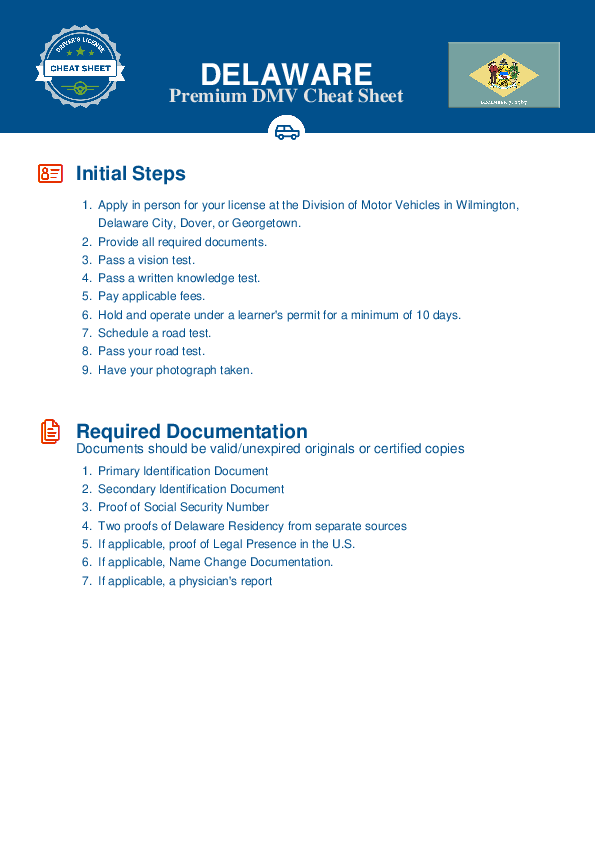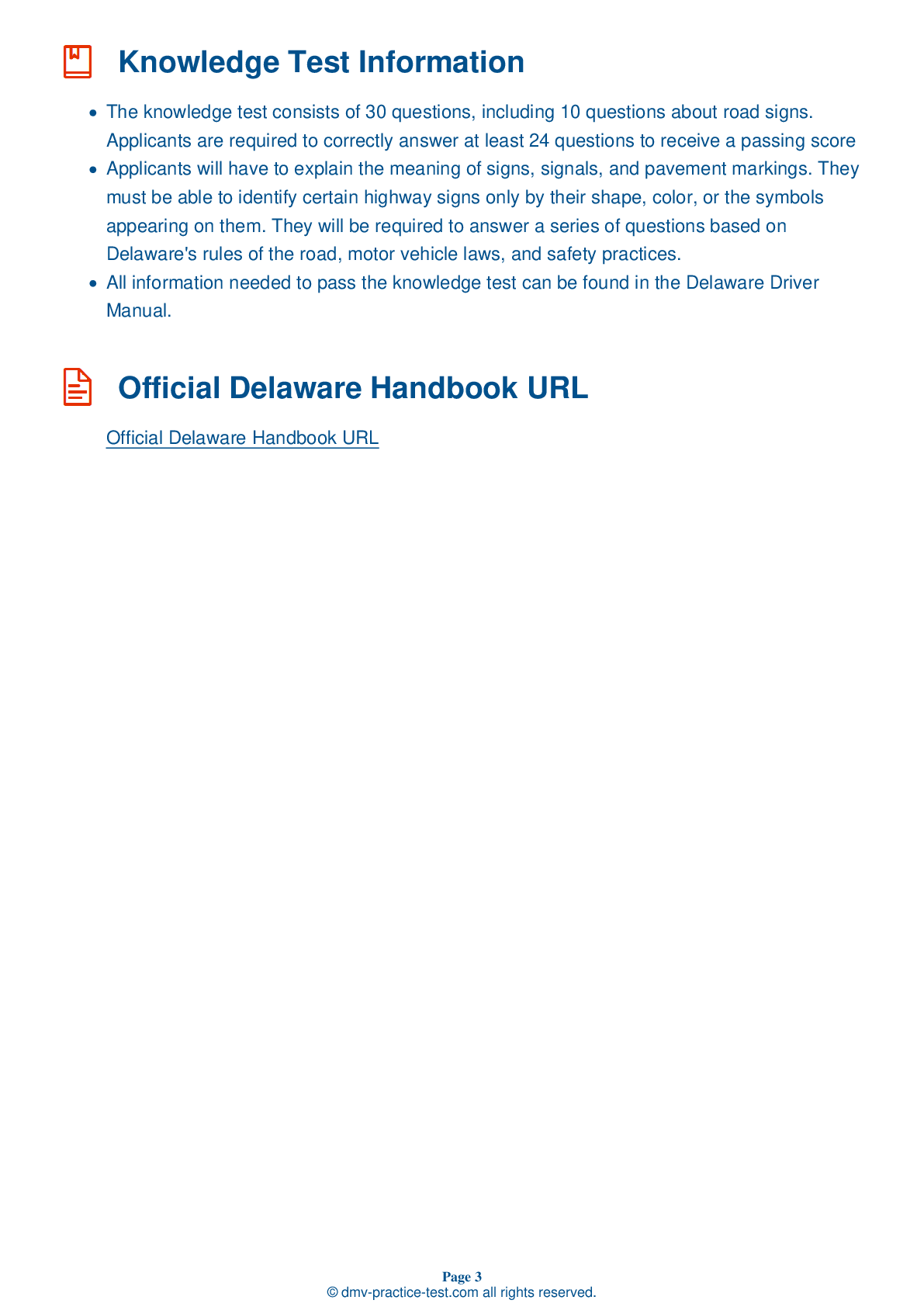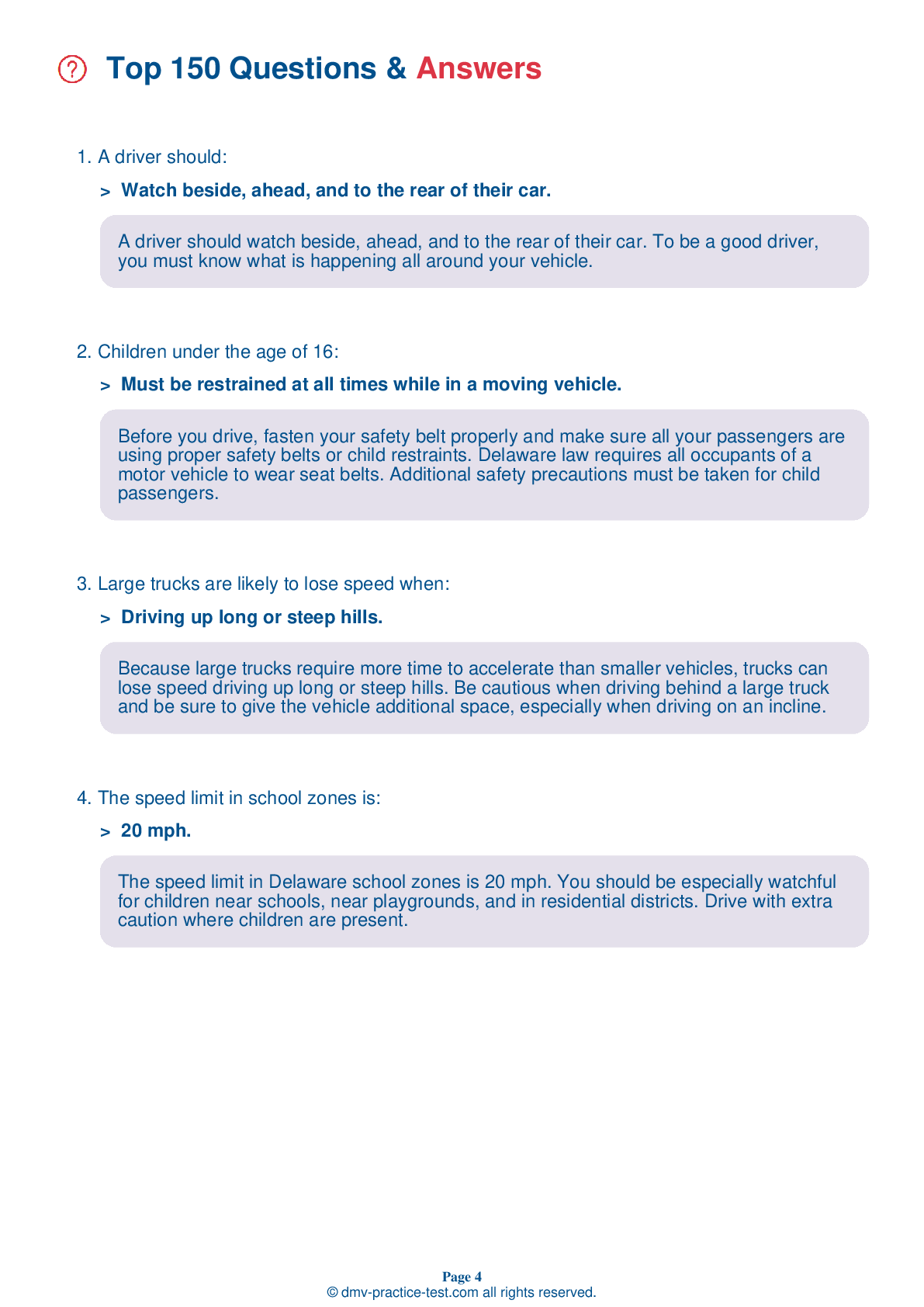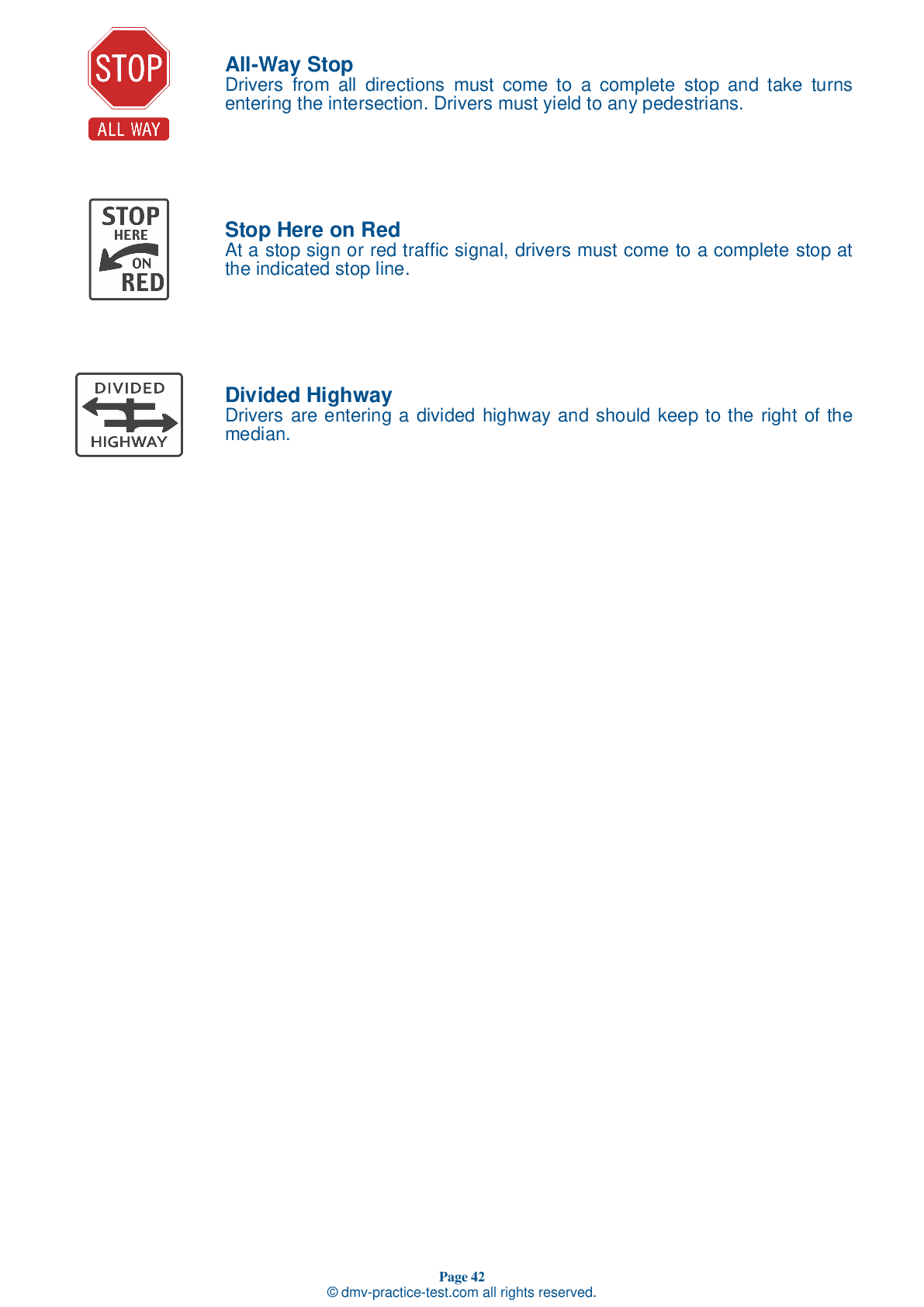FREE Delaware DMV Practice Test #5 Page 2 of 4
This set of DMV practise tests for Delaware was just updated for January 2026. It comprises questions based on the most important traffic signs and rules for 2026 from the Delaware Driver Handbook. To study for the DMV driving permit test and driver's licence exam, use actual questions that are very similar (often identical!) to the DMV driving permit test and driver's licence exam.
Each question on the practise exam has a tip and explanation to help you recall the ideas. Questions about road laws, traffic signs, and driving statutes, as well as information from the Driver Handbook, will be included in the written portion of the official DMV test.
You must properly answer 20 of the 25 questions to receive the required passing mark. To help you prepare for your Delaware instruction permit or driver's licence, take our DMV practise test.
The DMV exam is offered in a variety of languages.
Using any kind of testing assistance will result in an automatic fail, and the DMV may take additional action against your driver's licence, so stay away from it.
9 . Stopping distances and severity of crashes:
Stopping distances are longer and crashes are more severe when traffic travels at higher speeds.
10 . This sign means:
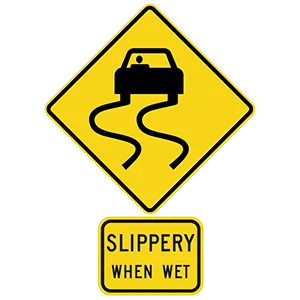
Warning signs are usually yellow with black markings. They alert you to conditions that are immediately ahead. This sign warns that the roadway is slippery when wet.
11 . An orange and red triangular sign on a vehicle always means:
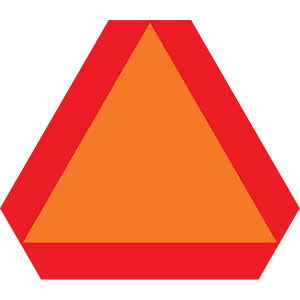
Slow-moving vehicles, such as farm tractors, road maintenance vehicles, and animal-drawn carts, display an orange and red triangle on the back.
12 . If it is necessary to make an emergency stop while driving on an interstate, you should:
If you must stop on the shoulder of the interstate or highway, turn on your emergency flashers to warn other drivers and stay inside your vehicle, if you can. The extremely high speed of traffic makes standing or walking along an interstate highway very dangerous.
13 . Broken yellow lines are used on streets and highways to:
Yellow lines separate traffic moving in opposite directions. Dashed lines on the pavement indicate that passing is permitted when safe.
14 . This sign means:
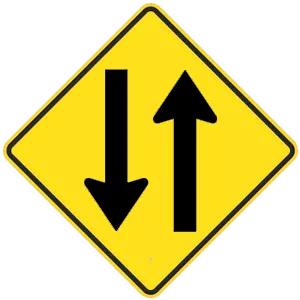
Warning signs are usually yellow with black markings. They alert you to conditions that are immediately ahead. This sign warns that you are leaving a separated one-way highway and will soon be driving on a two-way highway.
15 . This road sign means:

